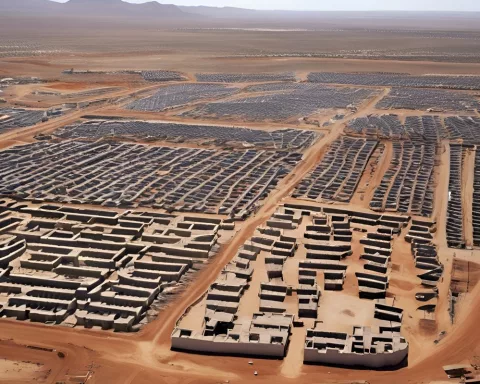On December 5, 2023, the South African National Assembly passed several landmark bills that reinforce independent institutions, advance social justice, and protect the nation’s youth and agricultural lands. Significant legislative reforms include the National Prosecuting Authority (NPA) Amendment Bill, Independent Police Investigative Directorate Amendment Bill, Prevention and Combating of Hate Crimes and Hate Speech Bill, National Youth Development Agency Amendment Bill, and Preservation and Development of Agricultural Land Amendment (PDAL) Bill. These changes represent a progressive legislative landscape that reflects the government’s commitment to meeting the nation’s evolving needs.
“Key Legislative Reforms passed in South African National Assembly on December 5, 2023, reinforced independent institutions, advanced social justice, and protected the nation’s youth and agricultural lands. Significant legislation includes the National Prosecuting Authority (NPA) Amendment Bill, Independent Police Investigative Directorate Amendment Bill, Prevention and Combating of Hate Crimes and Hate Speech Bill, National Youth Development Agency Amendment Bill, and Preservation and Development of Agricultural Land Amendment (PDAL) Bill.”
Key Legislative Reforms
December 5, 2023, will forever be remembered as a historic day in South Africa’s legislative history. The National Assembly passed a series of pivotal bills, signifying the government’s dedication to reinforcing independent institutions, advancing social justice, and protecting the nation’s youth and agricultural lands.
Among the significant legislations ratified was the National Prosecuting Authority (NPA) Amendment Bill. The bill introduces crucial modifications to the National Prosecuting Authority Act of 1998. It primarily seeks to make the Investigating Directorate against Corruption (IDAC), a body initially established through a 2019 presidential proclamation, a permanent entity within the NPA. In its original form, the IDAC was always under the threat of disbandment.
The modified NPA Act strengthens the independence of the NPA, empowering it to take action against high-level crimes more effectively. It guarantees the continued existence of IDAC, establishes a structure for the appointment of permanent investigators, and lays down an appeal system run by a retired judge. These modifications are designed to improve investigative capabilities and foster accountability.
Police Oversight and Social Justice
The passage of the Independent Police Investigative Directorate Amendment Bill was another notable event of the day. The amended bill refines the Independent Police Investigative Directorate Act of 2011 ensuring the Directorate’s neutrality and independence. It proposes that the Minister of Police, subject to cabinet approval, appoint the executive director of the IPID for a non-extendable term of seven to ten years. The appointment should then be communicated to Parliament within a fortnight.
In a significant move toward social justice, the lawmakers approved the Prevention and Combating of Hate Crimes and Hate Speech Bill. This carefully crafted bill reflects the government’s commitment to protecting all South Africans from hate crimes and hate speech, based on extensive discriminatory grounds. The bill provides clear definitions of hate crimes and hate speech and sets out penalties for transgressions.
Youth Empowerment and Agricultural Land Protection
The National Youth Development Agency Amendment Bill was another crucial piece of legislation passed during this remarkable session. The modified bill, which amends the National Youth Development Agency (NYDA) Act of 2008, expands the NYDA Board and restricts a Board member’s term to a maximum of two consecutive terms. It also requires board members to make financial disclosures and alters regulations regarding board meetings and agency funding.
The Preservation and Development of Agricultural Land Amendment (PDAL) Bill was the final significant legislation passed on this day. The bill aims to address the constraints of the Subdivision of Agricultural Land Act of 1970, ensuring the protection of agricultural land owned by the state, statutory bodies, communal entities, and land under traditional authorities’ management. This bill brings harmony to the use of agricultural land for both agricultural and non-agricultural purposes, aligning it with local authorities’ spatial planning.
A Progressive Legislative Landscape
These amendments and new bills collectively signify a dynamic and responsive legislative environment that meets the nation’s ever-evolving needs. They highlight the government’s unwavering commitment to institutional independence, social justice, and the protection of crucial resources. These legislative changes, embodying a spirit of progression and reform, are set to significantly shape South Africa’s future trajectory in the years to come.
1. What significant legislative reforms were passed in the South African National Assembly on December 5, 2023?
The South African National Assembly passed several landmark bills that reinforce independent institutions, advance social justice, and protect the nation’s youth and agricultural lands. These include the National Prosecuting Authority (NPA) Amendment Bill, Independent Police Investigative Directorate Amendment Bill, Prevention and Combating of Hate Crimes and Hate Speech Bill, National Youth Development Agency Amendment Bill, and Preservation and Development of Agricultural Land Amendment (PDAL) Bill.
2. What does the National Prosecuting Authority (NPA) Amendment Bill introduce?
The National Prosecuting Authority (NPA) Amendment Bill introduces crucial modifications to the National Prosecuting Authority Act of 1998, primarily seeking to make the Investigating Directorate against Corruption (IDAC) a permanent entity within the NPA. It strengthens the independence of the NPA, empowering it to take action against high-level crimes more effectively.
3. What does the Independent Police Investigative Directorate Amendment Bill propose?
The Independent Police Investigative Directorate Amendment Bill refines the Independent Police Investigative Directorate Act of 2011 ensuring the Directorate’s neutrality and independence. It proposes that the Minister of Police, subject to cabinet approval, appoint the executive director of the IPID for a non-extendable term of seven to ten years.
4. What does the Prevention and Combating of Hate Crimes and Hate Speech Bill set out to achieve?
The Prevention and Combating of Hate Crimes and Hate Speech Bill sets out to protect all South Africans from hate crimes and hate speech based on extensive discriminatory grounds. It provides clear definitions of hate crimes and hate speech and sets out penalties for transgressions.
5. What is the National Youth Development Agency Amendment Bill about?
The National Youth Development Agency Amendment Bill expands the NYDA Board and restricts a Board member’s term to a maximum of two consecutive terms. It also requires board members to make financial disclosures and alters regulations regarding board meetings and agency funding.
6. What does the Preservation and Development of Agricultural Land Amendment (PDAL) Bill aim to address?
The Preservation and Development of Agricultural Land Amendment (PDAL) Bill aims to address the constraints of the Subdivision of Agricultural Land Act of 1970, ensuring the protection of agricultural land owned by the state, statutory bodies, communal entities, and land under traditional authorities’ management. It brings harmony to the use of agricultural land for both agricultural and non-agricultural purposes, aligning it with local authorities’ spatial planning.












